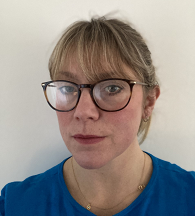Polly Black
I will be based at St-Andrews University and my project focuses on patients with multimorbidity who have a fall requiring hospital admission.
Having completed a masters in clinical research, I have spent my nursing career working in research, as a senior research nurse based in the with the Emergency Medicine Research Group in Edinburgh (EMERGE), my role with NHS Research Scotland coordinating all musculoskeletal research in Scotland, and as an expert member of Scotland A Research Ethics Committee. As a senior research nurse I have worked on numerous research studies that are based in the Emergency Department (ED) looking at improving diagnosis and treatment for a range of conditions. One project led me overseas to a newly built rural clinic in Zambia. Here I taught emergency medicine nursing skills to medical staff and helped design a research project that aimed to understand the value and the impact of this new clinical facility on the local community.
My own research interests lie in the management of multimorbid patients in the ED and how this raises the challenge of adopting realistic medicine within a protocol driven and time pressured culture. In 2018 I secured an individual research award from the Vale of Leven Inspiring Care Scholarship and examined the thoroughness of Anticipatory Care Plans (ACPs) and their use with dying patients in the ED.
This PhD gives me the opportunity to explore the outcome for multimorbid patients who are admitted to hospital through ED after a fall. Non-fatal falls that require a hospital admission are often an event that changes a person’s life; the injury itself can alter functionality, the ensuing hospital stay can highlight, worsen, or cause other medical conditions. Falls are also often an indicator that a person is no longer coping and can trigger a change in home circumstances. The overall aim of the project is to explore the outcome of patients with multimorbidity who have had a fall that required hospital admission, to identify what influences that outcome and therefore potentially identify an intervention to prevent such a fall becoming socially catastrophic.
The project will be mixed methods incorporating both quantitative and qualitative data. Quantitative data will be collected retrospectively from existing data sets and prospectively from patients recruited soon after they are admitted to hospital after a fall. Qualitative data will be collected by interviewing some of these patients and will provide a rich understanding of the patient’s perspective of their experience and their outcome.
Providing me with world class training and experience of research implementation, analysis and publication, this programme will give me the tools to pursue my goal to become a clinical academic nurse, continuing to explore the patient experience and striving to improve care through research.
Project: Avoiding social catastrophes in those with multimorbidity: an exploration of the use of routine healthcare data to predict the incidence of functionally significant major falls
Primary Supervisor: Prof Peter Donnelly (University of St Andrews)
Secondary Supervisors: Prof Colin McCowan (University of St Andrews)


